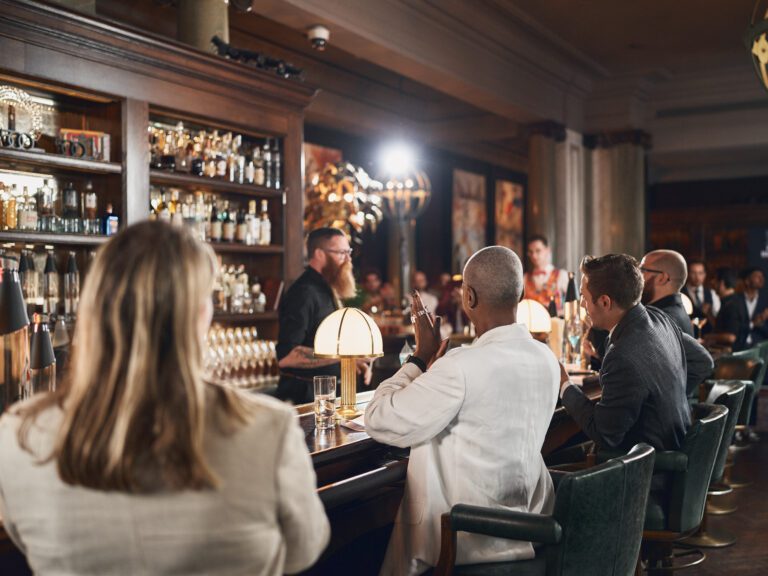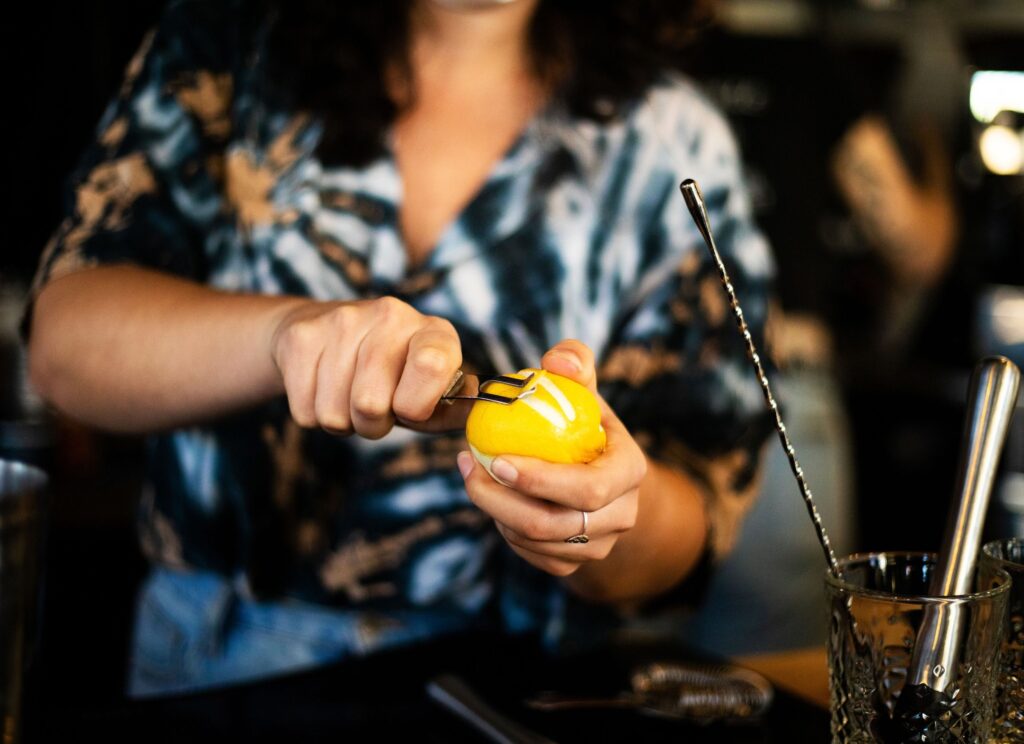
Functional Cocktails – A Revolution About To Start?
Are functional cocktails going to become the next drink trend in bars?
There has been a paradigm shift in UK habits towards alcohol and socialising in the last 5 years. The data is overwhelming in its insistence on generational changes in drinking habits.
A recent study by KAM Insights & Lucky Saint has indicated that three-quarters of UK adults claim to be moderating their intake and 1 in 3 visits to the UK on-trade are now alcohol-free.
This genuinely represents a fundamental change in the UK drinks industry and one that can’t be ignored.
Alongside this, we are seeing a huge trend towards well-being and wellness, which plays into consumers seeking different ways to drink.
Not forgetting the proliferation of functional drinks in the global market. In the USA, functional drinks now make up 10% of the non-alcoholic drinks market. The growth forecast for global revenue in the category is staggering – with the global market size expected to top $353.4 billion by 2030.
The question is, can this trend for functional and non-alcoholic drinks converge and start to make its way onto cocktail menus of the future, with bars offering functional non-alcoholic cocktails to guests?
Currently, non-alcoholic cocktail offerings in top bars are not keeping pace with consumer demand, with a leading beverage director admitting to us that the “non-alcoholic cocktails and spirits on our drinks programmes are an afterthought.”
This is clearly an issue for the category and one that needs to be addressed.
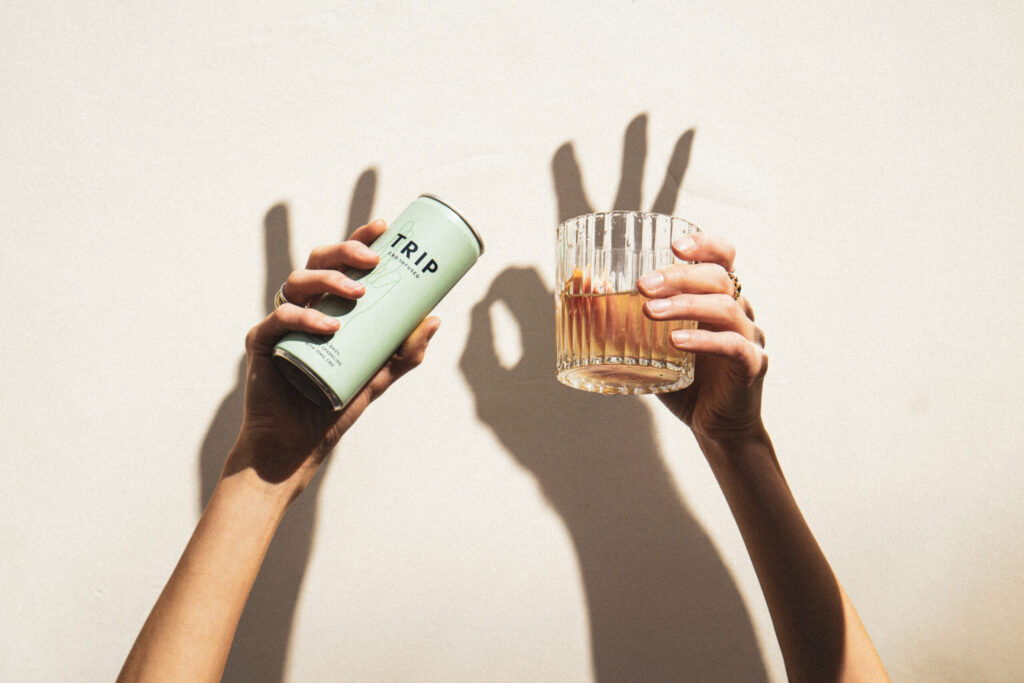
What Is a Functional Drink
A functional beverage contains ingredients aligned with wellness and added benefits – ingredients that may offer physiological or health benefits when drunk.
This is of great interest to a more wellness-aligned consumer, who wants to pack as many benefits from food and beverage as they can into their day.
CBD based functional drink Trip is the UK’s fastest-growing soft drink brand and there are a huge number of other functional brands appearing on retail shelves.
We are seeing the use of ingredients such as Ashwagandha (said to relieve anxiety and promote relaxation), probiotics to promote gut health and adaptogens to uplift and energise. What’s more, these products are being used more and more in daily supplementation, which points towards functional cocktails being more easily adopted then they would have been even only a few years ago.
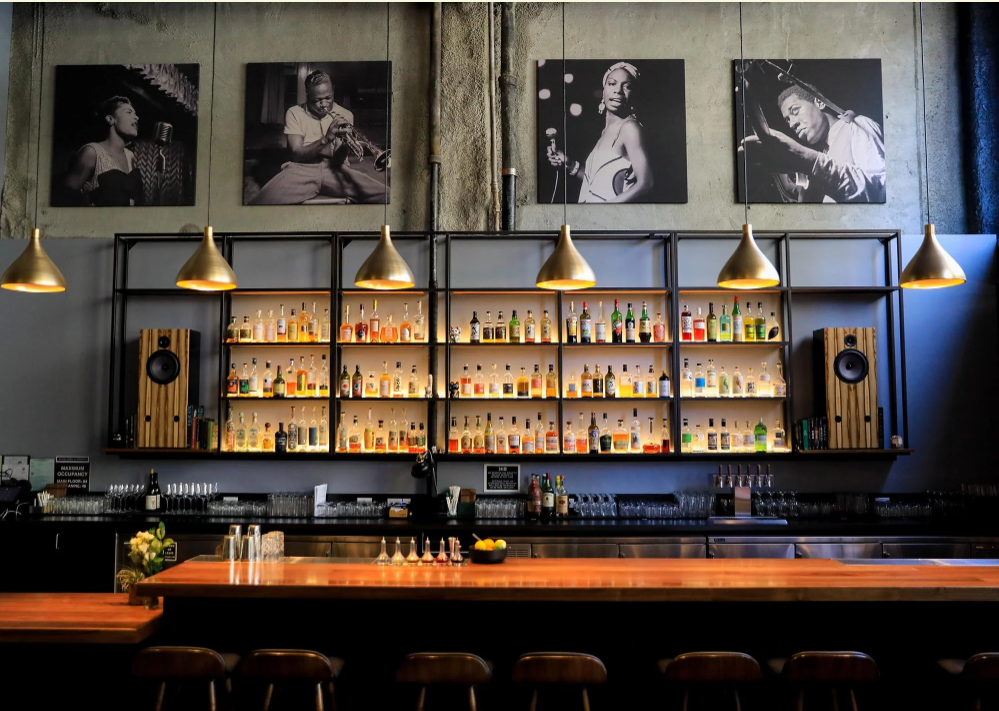
Can Functional Cocktails Become a Legit Trend in Bars?
There’s certainly potential but there are obstacles to overcome before we see functional cocktails popping up on more menues according to Derek Brown, no and low cocktail expert from Positive Damage in Washington DC.
“Are bartenders now expected to be herbalists, too? How do these products interact with alcohol if there’s switching back and forth? Can we drive after a mix of valerian root, lemon balm, and passionflower? A lack of knowledge could be one of the key factors holding this category back from reaching its full potential.”
And this knowledge is something that will slow down mass adoption by the bar community.
However, with such a strong consumer interest in this space, and the potential for increased sales, you can see bars and bartenders trying to overcome these roadblocks.
Bartenders also have a strong pull towards innovation and exploring flavour, texture and aesthetics – functional ingredients give them another frontier to explore.
Brown told us that from a consumer perspective, the groundwork is in place
“Functional beverages aren’t seen as strange anymore. Lemon balm in a whiskey alternative? Sure. Lions Mane in a cocktail? Why Not? My hope, for this emerging functional category, is that high-quality, effective products rise to the top – brands like Three Spirit and Aplós, for example.
Our own research with bartenders tells us that, widely, they don’t have the same excitement towards non-alcoholic cocktails as they do full-strength beverages.
With better products and the opportunity to innovate with functional ingredients, it could blow the no and low cocktail space wide open.
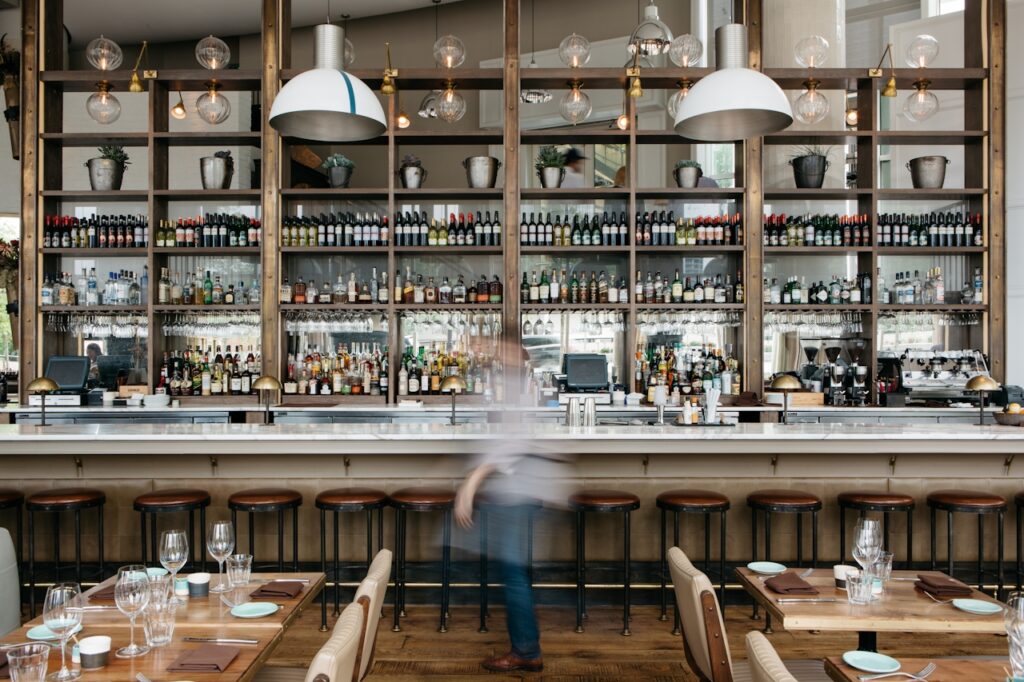
What Is the Feasibility Of Adding Functional Cocktails to Beverage Programmes?
We spoke to drinks development expert Kim Wilson at Future Drinks to establish whether or not it’s feasible for bars to start offering functional cocktails on the menu from a safety and flavour perspective.
Although she agrees with being cautious about ingredient dosing and usage, she points to products that are widely available in bars that can cause negative consequences if not consumed with caution.
“Caffeine we know has a negative impact if overly consumed, yet Espresso Martinis don’t come with any health warnings. Similarly, there are many functional RTD products on the market, that could, feasibly, cause negative interactions in some if overly consumed or mixed”
She also points out there is a wide spectrum of functional ingredients, “Not all functional ingredients are equal. Adaptogens tend to be in their natural form and inherently safer than say nootropics, which are synthetic and more potent. So a deep understanding of what you are working with is important”
Brown agreed when we asked him the potential barriers for bartenders “Education, education, education. We need more education for these products to become regular features on the menu.”
As has been mentioned there are potential issues around ingredients negatively interacting with one another.
Deke Dunne, Beverage Director at Allegory thinks although “there would be a tremendous amount of interest from the guests regarding wellness in cocktails, I will personally shy away from it. A similar trend, putting CBD in cocktails, took the cocktail community (in Washington DC at least) in 2017-2018, only for us to find out that guests were having adverse reactions.”
Wilson feels that exercising caution is important but that it shouldn’t be a barrier to entry, “there’s a lot to consider – dosage regulations to solubility and flavour considerations, there are multiple factors to keep in mind when developing drinks in this category but you can find a lot of the info you need online.
Really though, the recommendation would be to enlist the services of a drinks consultant to help develop safe-to-consume cocktails that taste great and have plenty of information on the menu. You could even prebatch functional cocktails so errors are not made during service”

A Bartenders Perspective
Functional spirits are already popping up with increased regularity on back bars through brands such as Sentia as well as more recognisable products such as Amari and bitters, which have been harnessing the power of functional ingredients since their inception (and in fact, the functional benefits they have are their original purpose).
Grace Mestecky is a USA bartender who is carving out a reputation in the functional cocktail space and she agrees with the importance of education, “The use of functional ingredients comes down to education- there are many ingredients that are safe in incredibly large doses that are perfect for budding herbal enthusiasts like chamomile, peppermint, lavender and cacao.” Before going on to add that “there are plenty of functional ingredients that do require strict education and dosing, such as kava or THC”
Metsecky also agrees with the opinions of Kim Wilson, telling us that “If bars want to include ingredients that have a consciousness-changing effect, they should employ the help of an educated specialist to help with dosing and education on how to approach serving these plants to patrons. As bartenders, we already have a keen eye for overconsumption and how to pace alcoholic beverages. That same skill set can be applied to functional drinks.”
She believes, as consumers lean away from alcohol “functional cocktails can increase the sales of your non-alcoholic beverage programme” which rings true with how the market is aligning.
Bars such as Botanica, San Diego and Death & Co are already exploring functional cocktails across their programmes to great effect, so perhaps a more mainstream approach to the use of functional ingredients in bars is not that far off.
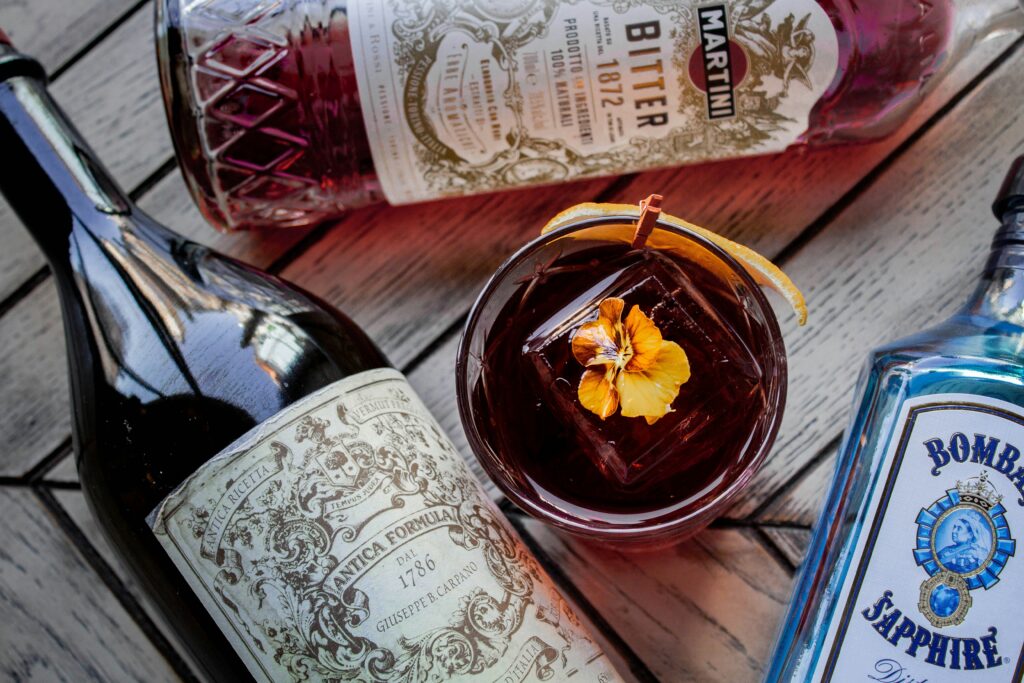
Takeaways
Overall, it feels there is a lot of potential for functional cocktails to trend in bars. With the proliferation of drinking less alcohol when socialising, as well as the huge consumer interest in functional drinks – it makes sense that experimental bars might start to offer functional cocktails on their menus.
What’s clear though, is any bartenders exploring this space need to do so with caution. Ensuring knowledge of dosing, ingredient solubility, good flavour and ensuring that no dubious claims are made on the menu is key.
Venues that are serious about serving functional cocktails must be diligent with their education and understanding to deliver a safe programme. If that’s something beverage directors don’t think they can oversee in-house then consulting with a leading bar consultancy would be a good option to capitalise on the opportunity.
The upside in terms of bars increasing rate of sale is significant, especially when considering the reported 30% of non-alcoholic visits to the on-trade. It feels like an opportunity not to be missed.
Ultimately, as Kim Wilson said to us “Functional cocktails in bars have the potential to make the non-alcoholic category really fun for bartenders who naturally want to push boundaries and innovate as well as giving consumers what they want to”
If You Want To Discover More About functional cocktails or our drinks consultancy services please get in touch with our team here.

Tom Bronock
Author Bio
Over 20+ years in the industry as a bartenders, bar owner and now drinks agency co-founder at Wilde Toast. Specialises in trend forecasting, industry insights and the on-trade.
Related Articles
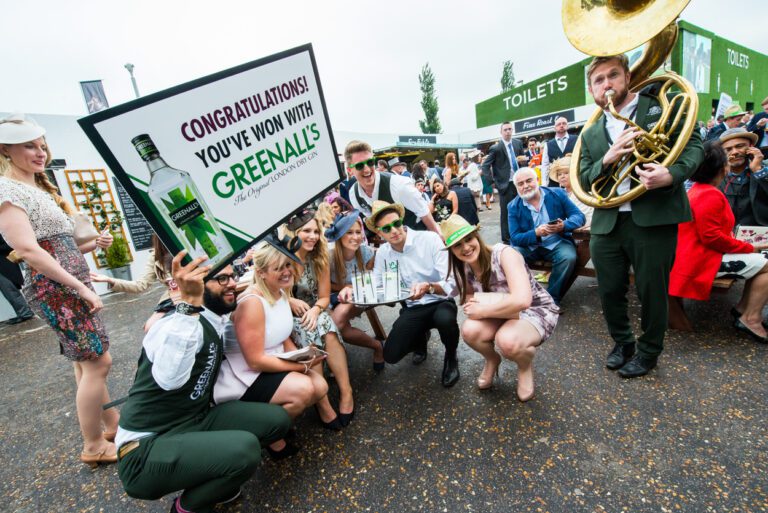
9 Things Drinks Brands Must Consider When Activating At Festivals
Having worked in the festival market for eight years I…
